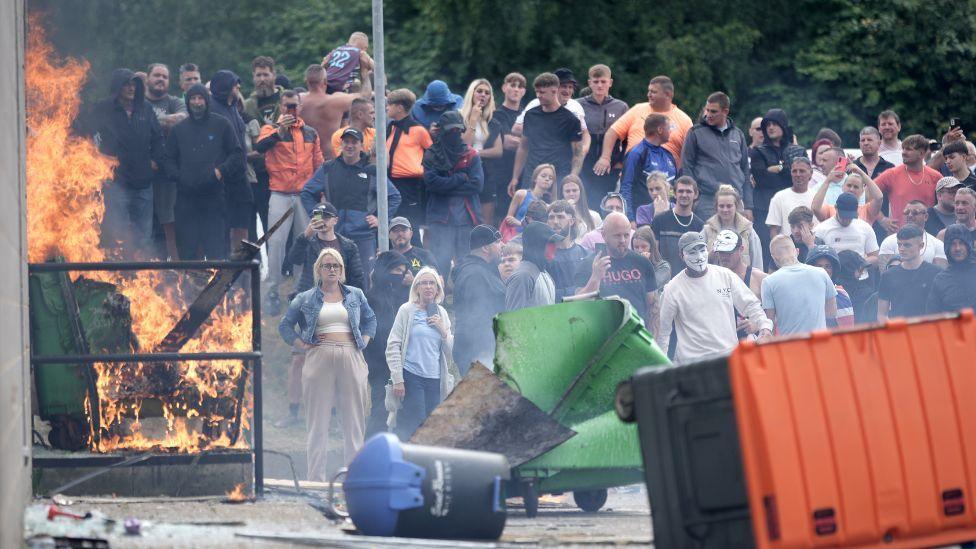Police Scotland to send 120 officers to Belfast after disorder
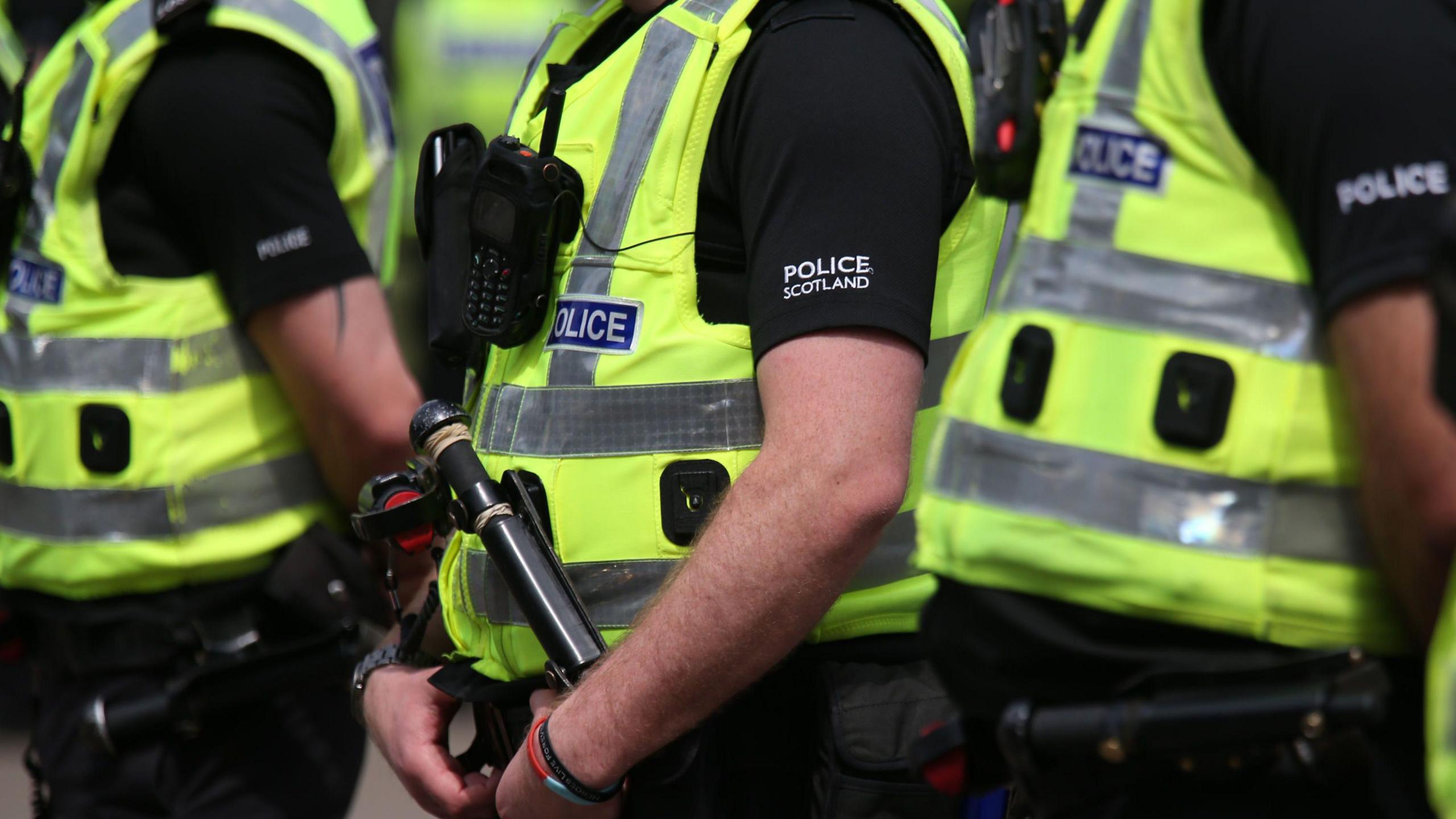
Police Scotland said it had responded to a "mutual aid" request from the PSNI
- Published
Police Scotland are to send 120 officers to Belfast over the next week to help quell threats of violence.
The force said it had received a mutual aid request from the Police Service of Northern Ireland (PSNI) ahead of expected anti-immigration demonstrations and counter protests on Friday.
A security operation is being put in place across Northern Ireland after 10 officers were injured and 26 people were arrested over six nights of rioting and disorder.
It comes after First Minister John Swinney wrote to social media companies Meta, TikTok and X calling for "immediate" action to tackle misinformation and hateful material which has fuelled violent scenes across parts of the UK.
Police mount major security operation in Belfast
- Published9 August 2024
We trust Scottish police protection is strong - Muslim council
- Published5 August 2024
Police Scotland said the officers would be loaned as part of the arrangement.
The PSNI’s assistant chief constable, Melanie Jones, said it would give the force “vital additional resilience” to deal with disorder.
Police in Belfast responded to several race-related hate crime incidents and other disorder on Thursday night, during which masked men targeted them with bricks and masonry, while cars were set on fire and homes were damaged.
Mrs Jones said 15 people had been charged with offences in relation to the disorder, describing the scenes as “a disgrace”.
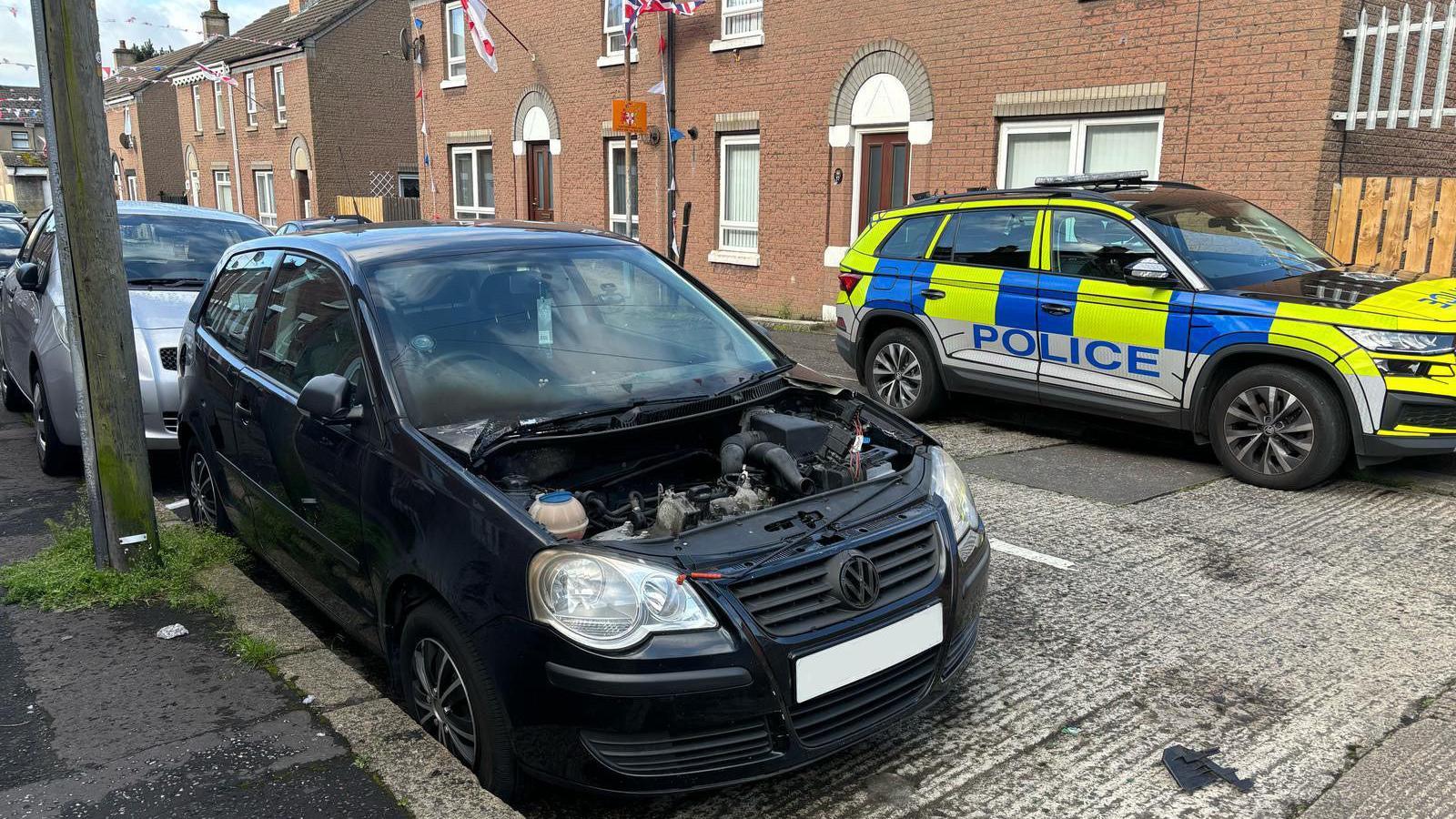
Vehicles were targeted during rioting in Belfast on Thursday
Police Scotland have maintained that there is “no intelligence” of similar scenes – which were sparked by incorrect claims an asylum seeker was responsible for killing three young girls in Southport, Merseyside – being repeated in Scotland.
A spokesperson said the force was able to assist its colleagues in Belfast without compromising on public safety in Scotland.
They said: "Mutual aid requests are always balanced against the needs of policing in Scotland.
"As a national service, Police Scotland has the ability to flex resources where the need is greatest in order to keep people safe."
On Friday evening, about 150 people joined a Stand Up to Racism demonstration in Paisley and about 100 people gathered at a similar event in Bathgate, West Lothian.
The events were organised in response to rumours on social media that anti-immigration protests were being planned in the towns.
However, there was no sign of far right protests.
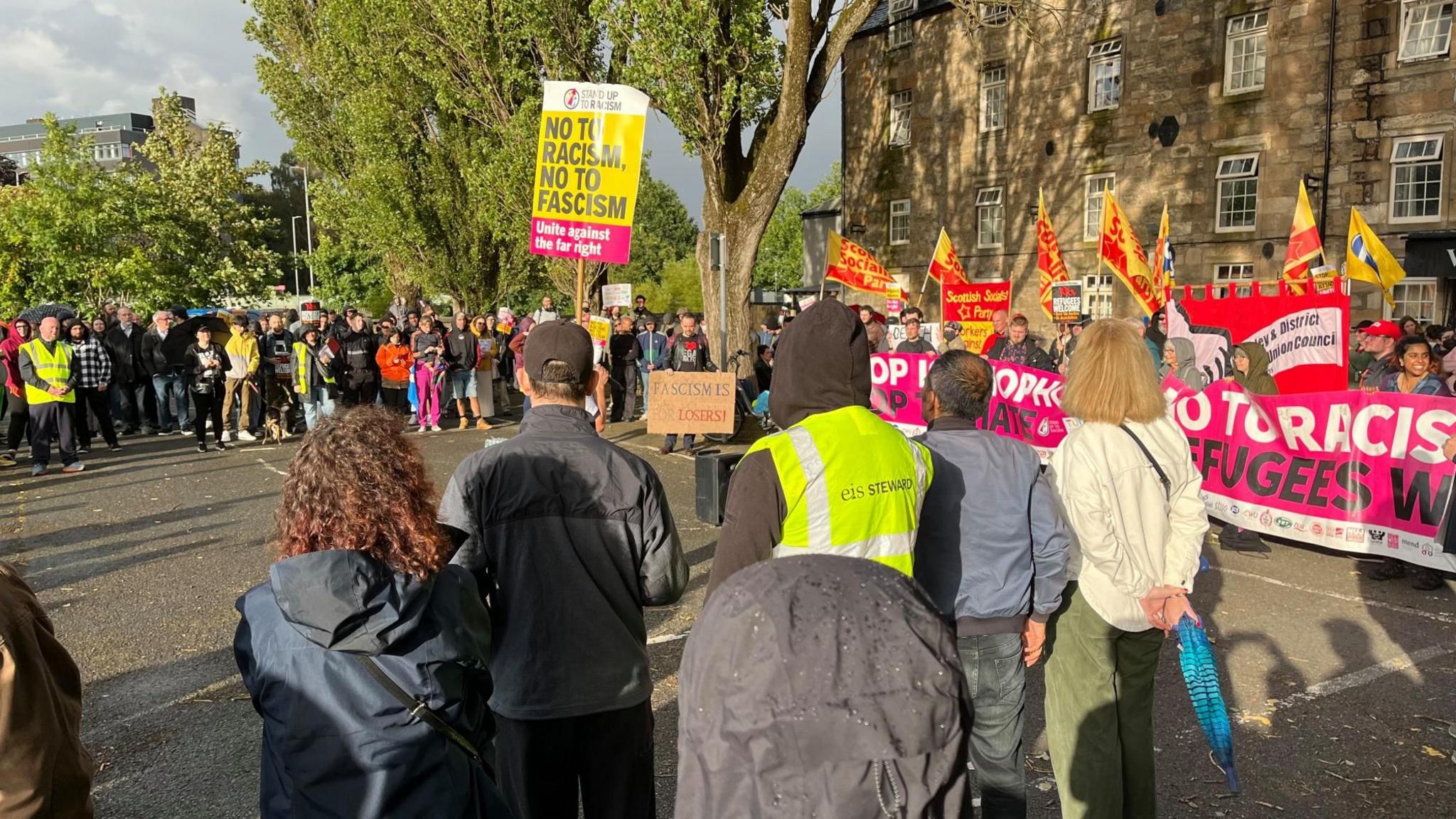
About 150 protesters gathered at a Stand Up to Racism demo in Paisley
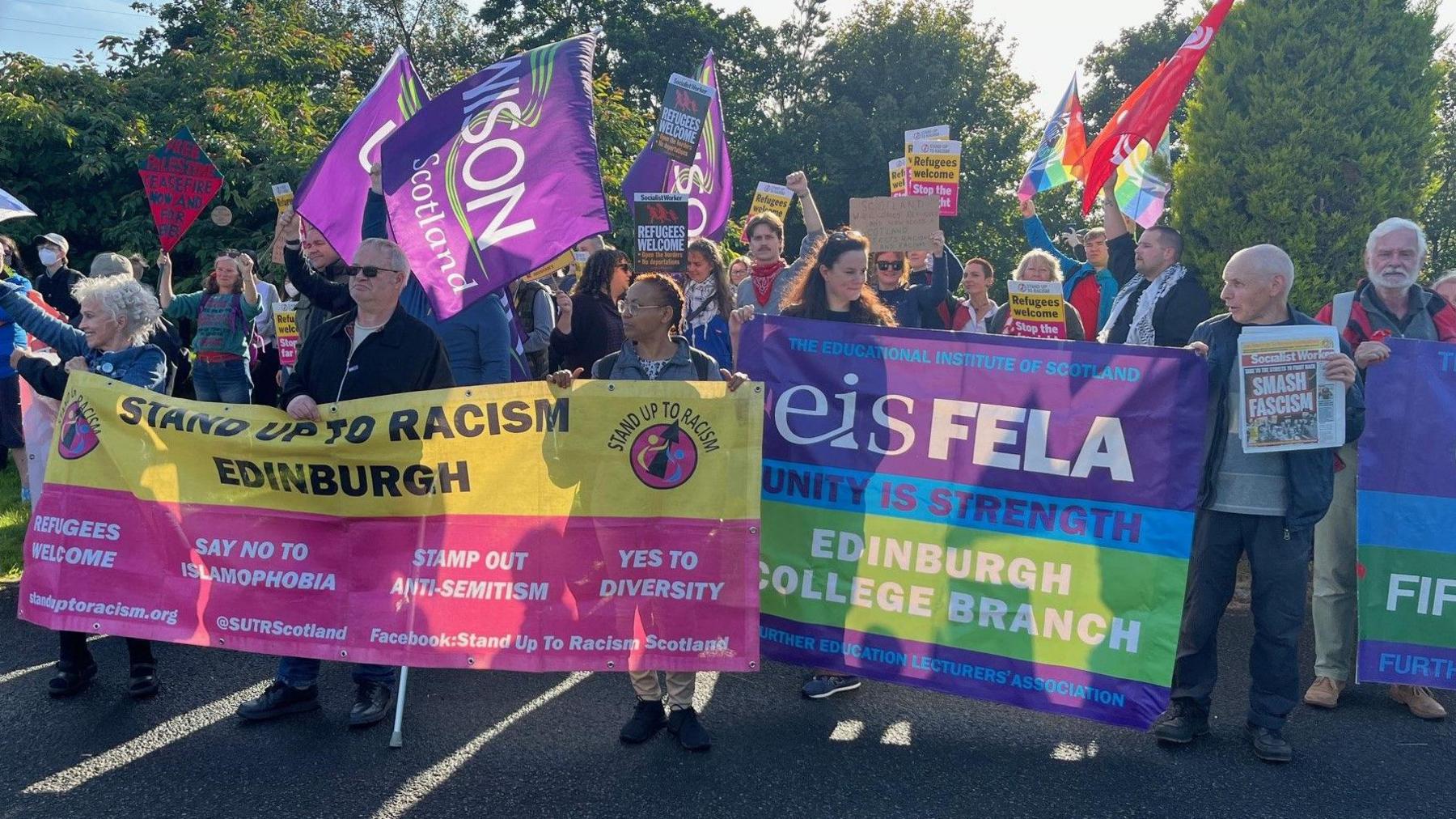
About 100 people joined a demonstration in Bathgate, West Lothian
Meanwhile, Mr Swinney said Police Scotland had specifically raised concerns with him about the time taken to remove problematic posts from social media.
He said some of the posts may have met the threshold for charges under Scotland's hate crime laws that came into effect in April this year.
The first minister praised the force for acting quickly to correct misinformation that three people in Stirling had been stabbed by an Asian man on Saturday.
That claim was perpetuated on social media by English Defence League founder Stephen Yaxley-Lennon, also known as Tommy Robinson.
Police later confirmed one 21-year-old woman had been taken to hospital with non-life-threatening injuries and a 29-year-old white man from the area, Callum Fisher, appeared in court on Monday charged with attempted murder.
Social media posts
Mr Swinney said there was “significant anxiety” within Scotland’s Muslim and Jewish communities over potential violence after meeting with faith leaders this week.
He said “adequate preparations” were in place to deal with any flare-ups should they happen and Police Scotland had the resources to deal with any potential disorder, regardless of the officers travelling to help colleagues across the Irish Sea.
He urged social media companies to outline the action they were taking to resist the spread of misinformation and to address racist and hateful speech across the platforms.
“I think social media companies are completely passive about this kind of issue," he said. "They have an obligation to operate within the legal framework of this country and they are regulated by the various regulatory approaches that are in place.
“They are allowing content to be circulated which incites hatred, which platforms violence and that’s unacceptable in our society today."
- Published4 August 2024
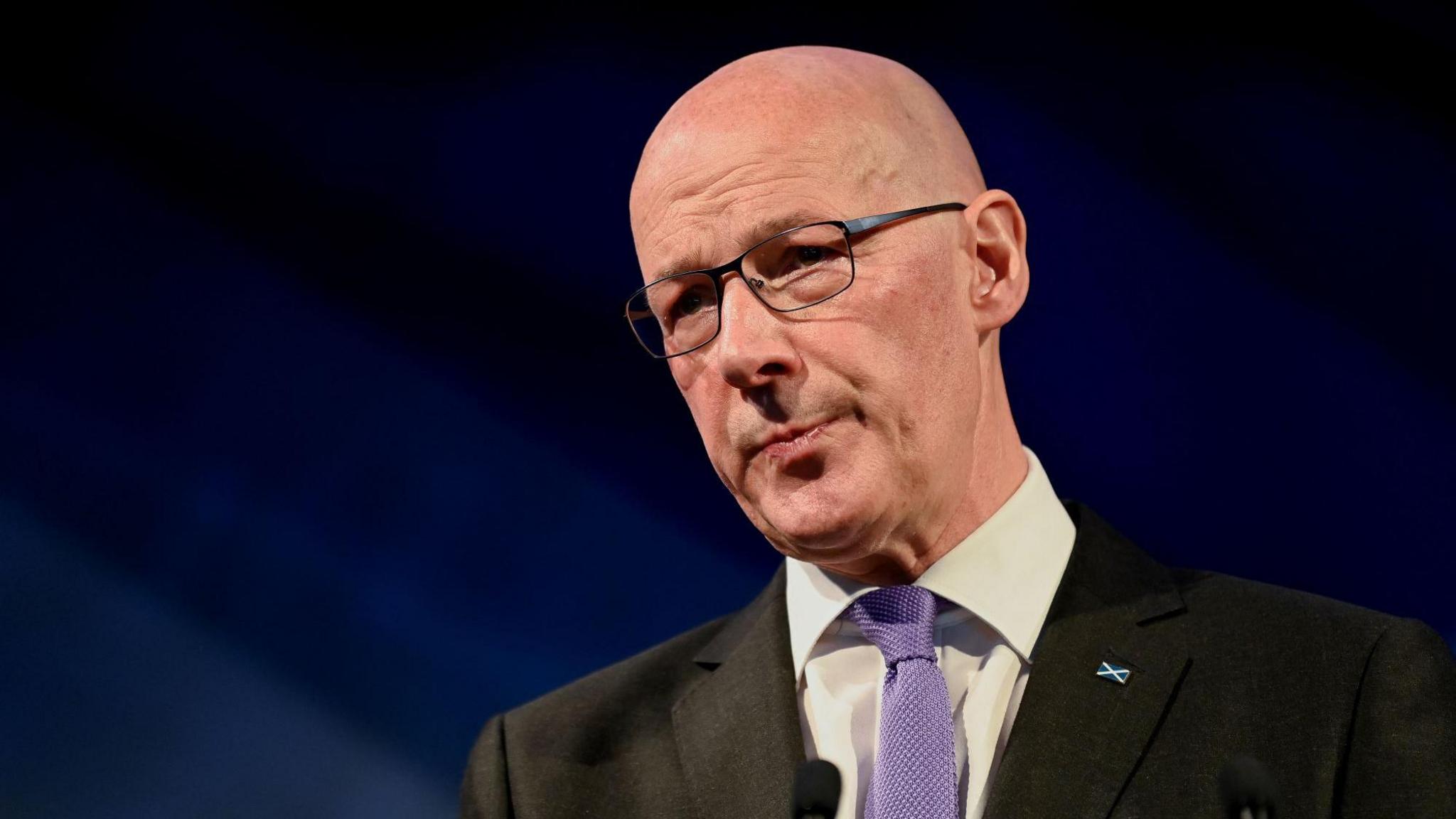
- Published7 August 2024
